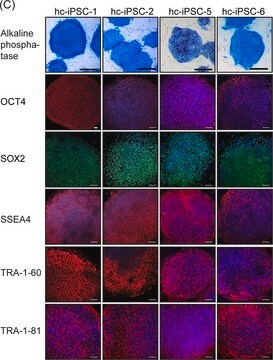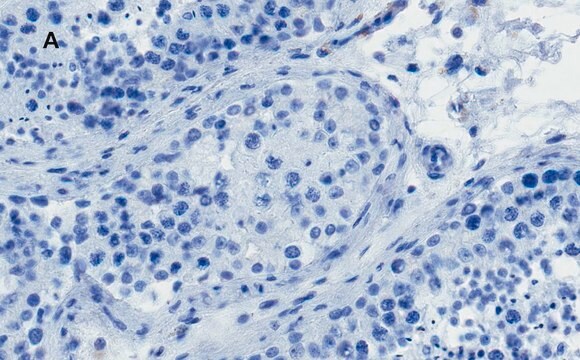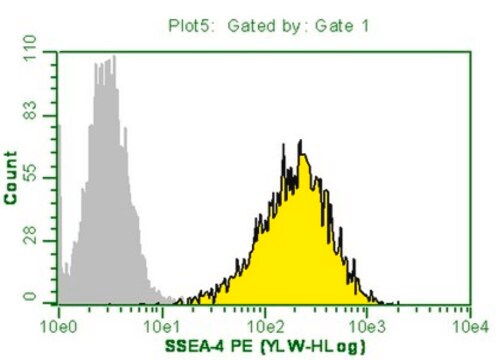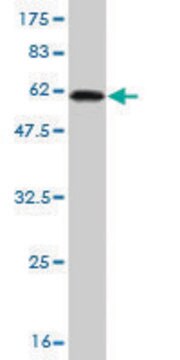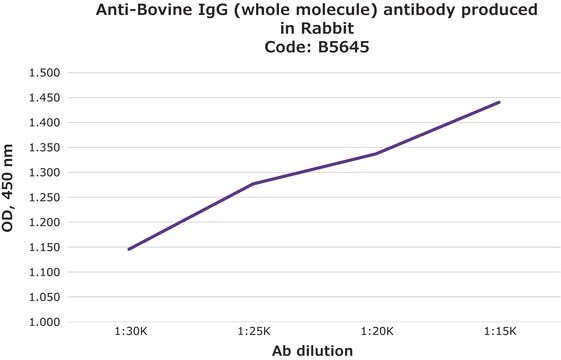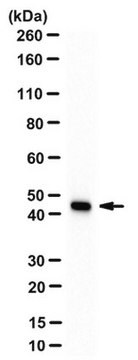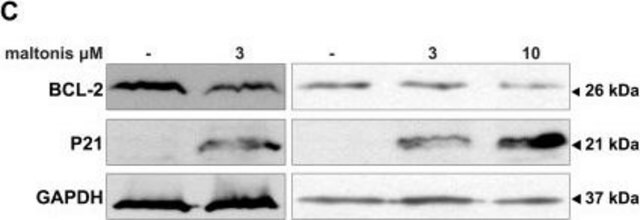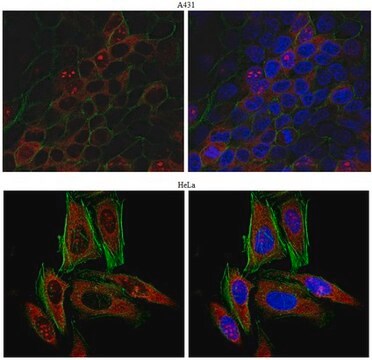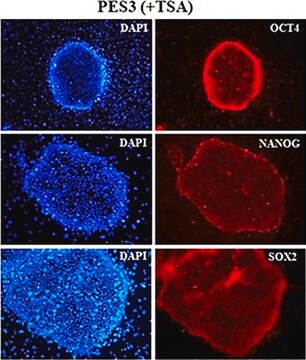MAB4301C3
Anti-SSEA1 Antibody, clone MC-480, Cy3 conjugate
clone MC-480, from mouse, CY3 conjugate
Synonym(s):
SSEA-1, SSEA1, CD15, Lewis X, 3-FAL
About This Item
Recommended Products
biological source
mouse
Quality Level
conjugate
CY3 conjugate
antibody form
purified immunoglobulin
antibody product type
primary antibodies
clone
MC-480, monoclonal
species reactivity
human
technique(s)
immunocytochemistry: suitable
isotype
IgM
NCBI accession no.
UniProt accession no.
shipped in
wet ice
target post-translational modification
unmodified
Gene Information
human ... FUT4(2526)
General description
Specificity
Immunogen
Application
Stem Cell Research
Pluripotent & Early Differentiation
Glycobiology
Quality
Target description
Physical form
Storage and Stability
Analysis Note
Mouse embryonic stem cells (SCR012).
Other Notes
Disclaimer
Not finding the right product?
Try our Product Selector Tool.
Storage Class
12 - Non Combustible Liquids
wgk_germany
WGK 2
flash_point_f
Not applicable
flash_point_c
Not applicable
Certificates of Analysis (COA)
Search for Certificates of Analysis (COA) by entering the products Lot/Batch Number. Lot and Batch Numbers can be found on a product’s label following the words ‘Lot’ or ‘Batch’.
Already Own This Product?
Find documentation for the products that you have recently purchased in the Document Library.
Our team of scientists has experience in all areas of research including Life Science, Material Science, Chemical Synthesis, Chromatography, Analytical and many others.
Contact Technical Service